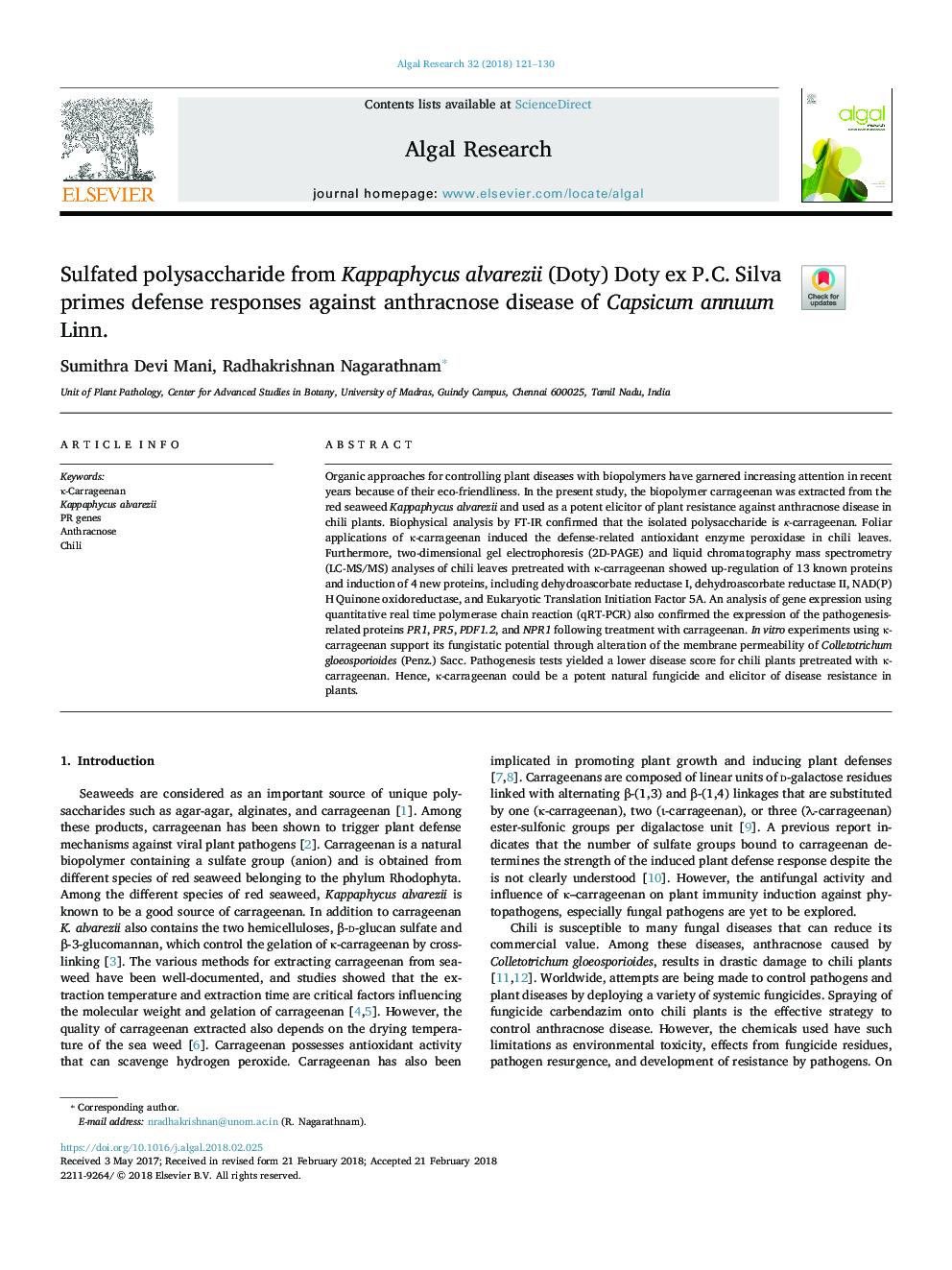| Article ID | Journal | Published Year | Pages | File Type |
|---|---|---|---|---|
| 8085921 | Algal Research | 2018 | 10 Pages |
Abstract
Organic approaches for controlling plant diseases with biopolymers have garnered increasing attention in recent years because of their eco-friendliness. In the present study, the biopolymer carrageenan was extracted from the red seaweed Kappaphycus alvarezii and used as a potent elicitor of plant resistance against anthracnose disease in chili plants. Biophysical analysis by FT-IR confirmed that the isolated polysaccharide is κ-carrageenan. Foliar applications of κ-carrageenan induced the defense-related antioxidant enzyme peroxidase in chili leaves. Furthermore, two-dimensional gel electrophoresis (2D-PAGE) and liquid chromatography mass spectrometry (LC-MS/MS) analyses of chili leaves pretreated with κ-carrageenan showed up-regulation of 13 known proteins and induction of 4 new proteins, including dehydroascorbate reductase I, dehydroascorbate reductase II, NAD(P)H Quinone oxidoreductase, and Eukaryotic Translation Initiation Factor 5A. An analysis of gene expression using quantitative real time polymerase chain reaction (qRT-PCR) also confirmed the expression of the pathogenesis-related proteins PR1, PR5, PDF1.2, and NPR1 following treatment with carrageenan. In vitro experiments using κ-carrageenan support its fungistatic potential through alteration of the membrane permeability of Colletotrichum gloeosporioides (Penz.) Sacc. Pathogenesis tests yielded a lower disease score for chili plants pretreated with κ-carrageenan. Hence, κ-carrageenan could be a potent natural fungicide and elicitor of disease resistance in plants.
Related Topics
Physical Sciences and Engineering
Energy
Renewable Energy, Sustainability and the Environment
Authors
Sumithra Devi Mani, Radhakrishnan Nagarathnam,
